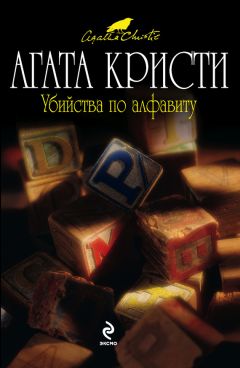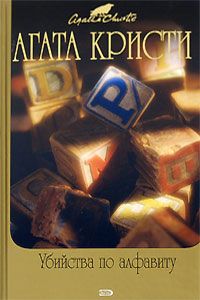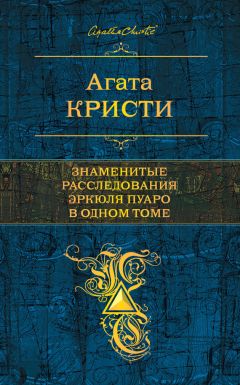Agatha Christie - Английский язык с Агатой Кристи. Убийства по алфавиту
eloquent [ˈelǝʋkwǝnt], anxious [ˈæŋkʃǝs], scrawl [skrɔ:l]
His eloquent hand pointed to the calendar on the wall. I caught up the daily paper to confirm it.
"But why — how —" I stammered.
Poirot caught up the torn envelope from the floor. Something unusual about the address had registered itself vaguely in my brain, but I had been too anxious to get at the contents of the letter to pay more than fleeting attention to it.
Poirot was at the time living in Whitehaven Mansions. The address ran: M. Hercule Poirot, Whitehorse Mansions. Across the corner was scrawled: "Not known at Whitehorse Mansions, E.C.1, nor at Whitehorse Court — try Whitehaven Mansions."
"Mon Dieu!" murmured Poirot (фр. Бог мой, — пробормотал Пуаро). "Does even chance aid this madman (/неужели/ даже удача помогает этому сумасшедшему)? Vite (фр. быстро)… vite … — we must get on to Scotland Yard (мы должны связаться со Скотланд-Ярдом)."
A minute or two later we were speaking to Crome over the wire (минуту или две спустя мы разговаривали по телефону с Кроумом; wire — проволока; телефонный провод). For once the self-controlled inspector did not reply "Oh, yes (на этот раз сдержанный инспектор не ответил «О, да?»)? Instead a quickly stifled curse came to his lips (вместо /этого/ быстрое приглушенное ругательство сошло с его губ). He heard what we had to say (он выслушал, что у нас было ему рассказать), then rang off (затем повесил трубку; to ring off — давать отбой /по телефону/; вешать трубку) in order to get a trunk connection to Churston (чтобы получить прямую связь с Черстоном; trunk — ствол; туловище; прямая линия) as rapidly as possible (как можно быстрее: «как быстро насколько это возможно»).
"C'est trop tard," murmured Poirot (фр. слишком поздно, — пробормотал Пуаро).
wire [waɪǝ], stifle [staɪfl], trunk [trʌŋk]
"Mon Dieu!" murmured Poirot. "Does even chance aid this madman? Vite… vite… — we must get on to Scotland Yard."
A minute or two later we were speaking to Crome over the wire. For once the self-controlled inspector did not reply "Oh, yes? Instead a quickly stifled curse came to his lips. He heard what we had to say, then rang off in order to get a trunk connection to Churston as rapidly as possible.
"C'est trop tard," murmured Poirot.
"You can't be sure of that," I argued (вы не можете быть в этом уверены в этом, — возразил я), though without any great hope (хотя без большой надежды).
He glanced at the clock (он взглянул на часы). "Twenty minutes past ten (двадцать минут одиннадцатого: «после десяти»)? An hour and forty minutes to go (час и сорок минут еще /осталось/). Is it likely (/разве/ похоже) that A.B.C. will have held his hand so long (что Эй-би-си будет так долго сдерживаться: «удерживать свою руку»)?"
I opened the railway guide (я открыл железнодорожный справочник) I had previously taken from its shelf (/который/ я ранее снял с полки; previously — заблаговременно, заранее, предварительно; перед).
"Churston, Devon," I read (Черстон, /графство/ Девон = Девоншир, — прочитал я), "from Paddington 204 miles (от Пэддингтона двести четыре мили). Population 544 (население — пятьсот сорок четыре /человека/). It sounds a fairly small place (это звучит как очень маленькое место = кажется, …). Surely our man will be bound to be noticed there (конечно, наш человек = преступник обязан быть там замеченным = будет неизбежно замечен)."
"Even so (даже /если/ так; even so — даже при этих условиях), another life will have been taken," murmured Poirot (еще одна жизнь будет отнята, — пробормотал Пуаро). "What are the trains (какие есть поезда)? I imagine (я представляю; to imagine — воображать; представлять) train will be quicker than car (что поезд будет быстрее, чем машина)."
likely [ˈlaɪklɪ], population [ˌpɔpju:ˈleɪʃ(ǝ)n], fairly [ˈfɛǝlɪ]
"You can't be sure of that," I argued, though without any great hope.
He glanced at the clock. "Twenty minutes past ten? An hour and forty minutes to go. Is it likely that A.B.C. will have held his hand so long?"
I opened the railway guide I had previously taken from its shelf.
"Churston, Devon," I read, "from Paddington 204 miles. Population 544. It sounds a fairly small place. Surely our man will be bound to be noticed there."
"Even so, another life will have been taken," murmured Poirot. "What are the trains? I imagine train will be quicker than car."
"There's a midnight train (есть полуночный поезд) — sleeping-car to Newton Abbot (спальный вагон в Ньютон-Эббот) — gets there 6:08 A.M. (прибывает туда в шесть ноль восемь утра), and to Churston at 7:15 (и в Черстон в семь пятнадцать)."
"That is from Paddington (это из Пэддингтона)?"
"Paddington, yes (/из/ Пэддингтона, да)."
"We will take that, Hastings (нам это подходит: «мы возьмем это», Гастингс)."
"You'll hardly have time to get news (у вас едва ли будет время получить новости) before we start (перед тем, как мы отправимся)."
"If we receive bad news tonight or tomorrow morning (получим ли мы плохие новости сегодня вечером или завтра утром), does it matter which (имеет ли значение, когда именно; which — который /именно/)?"
sleeping-car [ˈsli:pɪŋ kɑ:], tonight [tǝˈnaɪt], matter [ˈmætǝ]
"There's a midnight train — sleeping-car to Newton Abbot — gets there 6:08 A.M., and to Churston at 7:15."
"That is from Paddington?"
"Paddington, yes."
"We will take that, Hastings."
"You'll hardly have time to get news before we start."
"If we receive bad news tonight or tomorrow morning, does it matter which?"
"There's something in that (в этом что-то есть)."
I put a few things together in a suitcase (я сложил несколько вещей вместе в чемодан) whilst Poirot once more rang up Scotland Yard (пока Пуаро еще раз звонил в Скотланд-Ярд; to ring).
A few minutes later (несколько минут спустя) he came into the bedroom and demanded (он вошел в спальню и спросил): "Mais qu'est-ce que vous faites là (фр. ну, что вы тут делаете)?"
"I was packing for you (я упаковывал ваш чемодан: «я паковался для вас»). I thought (я подумал), it would save time (это сэкономит время)."
"Vous prouvez trop d'emotion, Hastings (фр. вы, оказывается, слишком эмоциональны, Гастингс). It affects your hands and your wits (это влияет на ваши руки и вашу сообразительность). Is that a way to fold a coat (разве так складывают пальто: «это есть способ складывать пальто»)? And regard (и посмотрите) what you have done to my pyjamas (что вы сделали с моей пижамой). If the hairwash breaks (если шампунь для волос разобьется) what will befall them (что случиться с ней)?"
fold [fǝʋld], pyjamas [pǝˈʤɑ:mǝz], hairwash [ˈhɛǝwɔʃ]
"There's something in that."
I put a few things together in a suitcase whilst Poirot once more rang up Scotland Yard.
A few minutes later he came into the bedroom and demanded: "Mais qu'est-ce que vous faites là?"
"I was packing for you. I thought it would save time."
"Vous prouvez trop d'emotion, Hastings. It affects your hands and your wits. Is that a way to fold a coat? And regard what you have done to my pyjamas. If the hairwash breaks what will befall them?"
"Good heavens, Poirot," I cried (о Боже: «святые небеса», Пуаро, — вскричал я), "this is a matter of life and death (это дело жизни и смерти). What does it matter (какое значение имеет) what happens to our clothes (что случиться с нашей одеждой)?"
"You have no sense of proportion, Hastings (у вас нет чувства гармонии: «пропорции», Гастингс). We cannot catch a train earlier (мы не сможем успеть на поезд раньше: «мы не можем поймать поезд раньше») than the time that it leaves (чем в то время, когда он отправляется), and to ruin one's clothes will not be the least helpful in preventing a murder (и испортить чью-то одежду не будет ни в малейшей мере полезным для предотвращения убийства; to ruin — разрушать; портить)."




